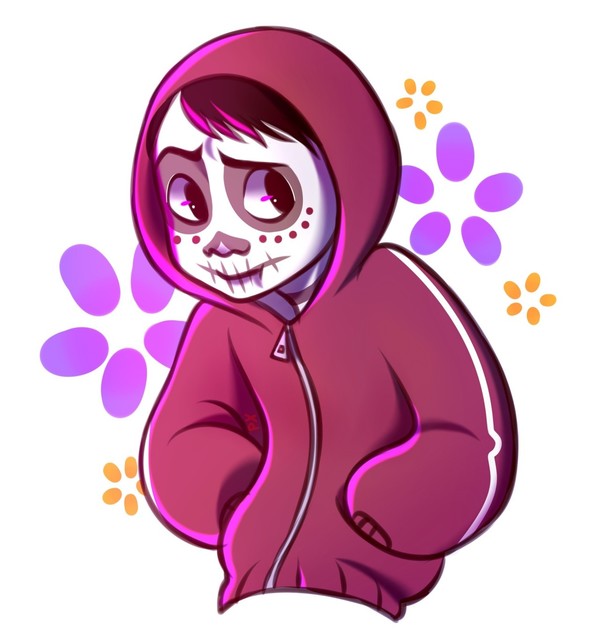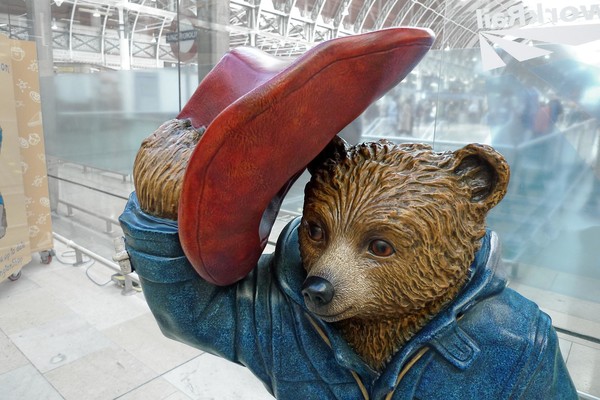What characters make you feel represented?

THE SLOW but steady growth of public demand for inclusive media has allowed underrepresented demographics to finally feel that their stories are being told to the world. Even Hollywood, notorious for shying away from diversity, is sharing minority stories, with movies like Minari and Moonlight. The Yonsei Annals reached out to Yonsei students and asked what characters they feel represent them best and why this representation is important to them.
Gahiana Gomez Guerrero (Fresh., Dept. of Life Science & Biotechnology)
“Coming from a Latino background, finding good and healthy representation in the media has been difficult, especially as a woman. However, there have been some instances where I felt well represented, such as in Disney’s movie Coco. All the characters were brilliant, but personally, I related the most to the main character, the 12-year-old aspiring musician Miguel. He always wanted to break away from the norm, straying from tradition and following his own dreams even if it meant going against his family. Like Korea, Mexico is still a rather traditionalist nation with great value placed on conforming to your family so I could see myself represented in that aspect. Not only that but Coco shares a well-educated image of Mexico and its culture by exploring the significance of Día de Muertos[1] which is why it has become a representative movie for us Latinos. In the future, I do wish to see more movies and shows where Latino characters are represented without the stereotypes that have filled the screens of American media over the years.”
Kim Da-hyun (Soph., Dept. of Political Science & Int. Studies)
“I thought the question was difficult to answer, and it took me a while to realize why. I was narrowing my character options to 'women,' 'Asian,' and then 'Korean.' I decided to think outside the box and consider characters from animated movies. The character that I relate to the most is Olaf, a cute talkative snowman created by Elsa in Frozen. Recently, I began reflecting on myself more, who I am, and what I should become. During Frozen 2, Olaf faces an existential crisis during his quests with the other characters, pondering what it means to grow up and learn about the world. For example, Olaf questions how to cope with the 'ever increasing complexity of thought that comes with maturity.' This identity crisis of mine overlaps with Olaf’s.”
Park Ha-jeong (Jr., UIC, Creative Tech. Management)
“I strongly resonate with Janet Kim, a character from the Canadian sitcom Kim's Convenience. Janet represents a blend of cultures, mixing what she learned from her Korean parents and local influence. Janet is constantly troubled navigating her double cultural identities. The sitcom portrays an ordinary Korean family, closely depicting their family relationships, issues, and experiences that those with Asian identity face in a foreign land. The show illustrates Janet’s change in attitude towards her parents. Initially, she believes the problems she confronts are due to her familial roots and her difference from her friends but eventually she learns to embrace her parents' traditionalism. Janet’s experience was relatable as I underwent the same process of living abroad in the Philippines from a young age. I hope to see more content in the media that can share the diverse aspects of Asian cultures globally!”
Jung Yong-suk (Fresh., GLC, Global Leadership Div.)
“I recognized part of myself in a lovable bear named Paddington, who struggled when he first migrated to Britain in the eponymous film. I spent 18 years in China before coming to Yonsei University, and when I first arrived in Korea, I felt uneasy with Korean culture. However, just like Paddington perceived London as his new home after meeting the Brown family, I find myself more comfortable in Korea after having met my friends in Yonsei. I like how Paddington shows the influence the community has over immigrants. While Paddington picked up an English accent and love for marmalade sandwiches from the Brown family, I learned diverse Korean slangs and cuisines like soft tofu stew from my friends in Yonsei.”

Bae Joo-won (Fresh., Dept. of Psychology)
“Because I was raised in a single parent household, I sympathized with Fred in the film Little Man Tate, a gifted child raised solely by his mother who struggles to fit into the society due to his exceptional intellect. I was seven when I moved to China, but unable to understand Chinese, I had a hard time making friends, just like Fred in the movie. My mother was busy because as a single parent she had to take all the financial burden herself. Nonetheless, she tried to spend a lot of time with me. My mother tried her best so that I could feel less lonely and make new friends, similar to how Fred’s mother helped him to find connections with the 'real' world, outside of his genius world. Fred’s mother guided him between his brilliance and sociality, I believe my mother guided me to become who I am now, and I am truly thankful for her sacrifice.”
Latifa Anati Sekarini (Soph., UIC, Comparative Literature & Culture)
“As a Muslim woman, I resonated with Amina, Saira, Ayesha, Bisma, and Momtaz—the main characters of the British television sitcom, We Are Lady Parts. Growing up, people told me you could not be both a Muslim and a feminist or that you could not be queer and Muslim. It felt comforting to see an all-Muslim punk girl band singing songs about dating as a Muslim woman and criticizing non-Muslims' fear of hijabis. Most British or American shows I have seen depict Muslim women as oppressed, voiceless, and in need of someone to save them from the patriarchal confines of Islam—stereotypes that do not apply to most Muslim women I know. I watched We Are Lady Parts during a transitional period in my life when I was feeling very unsure of what kind of Muslim I wanted to be and whether there were parts of my identity that conflicted with my faith.”
Fatimatou Zahra Ndiaye (Jr., UIC, International Studies)
“[A character that represents me does not] come to mind, mainly because I have not been exposing myself to various sources of media in the last few years. I usually watch Korean dramas, and so far, I have not seen one with a Muslim character. I am not sure whether I want to see Muslim characters in Korean dramas. On the one hand, it would be a good idea because Koreans have a lot of misconceptions, and there is more Islamophobia ingrained in society than one might think. At the same time, I am afraid that we would be terribly misrepresented since Koreans’ opinions on Islam and Muslims are influenced by what they see in Western media. I fear that if drama writers inspire themselves from mainstream Western representation instead of doing their research, it would only worsen [Koreans’ opinions on Muslims].”
[1] Día de Muertos: Day of the Dead

